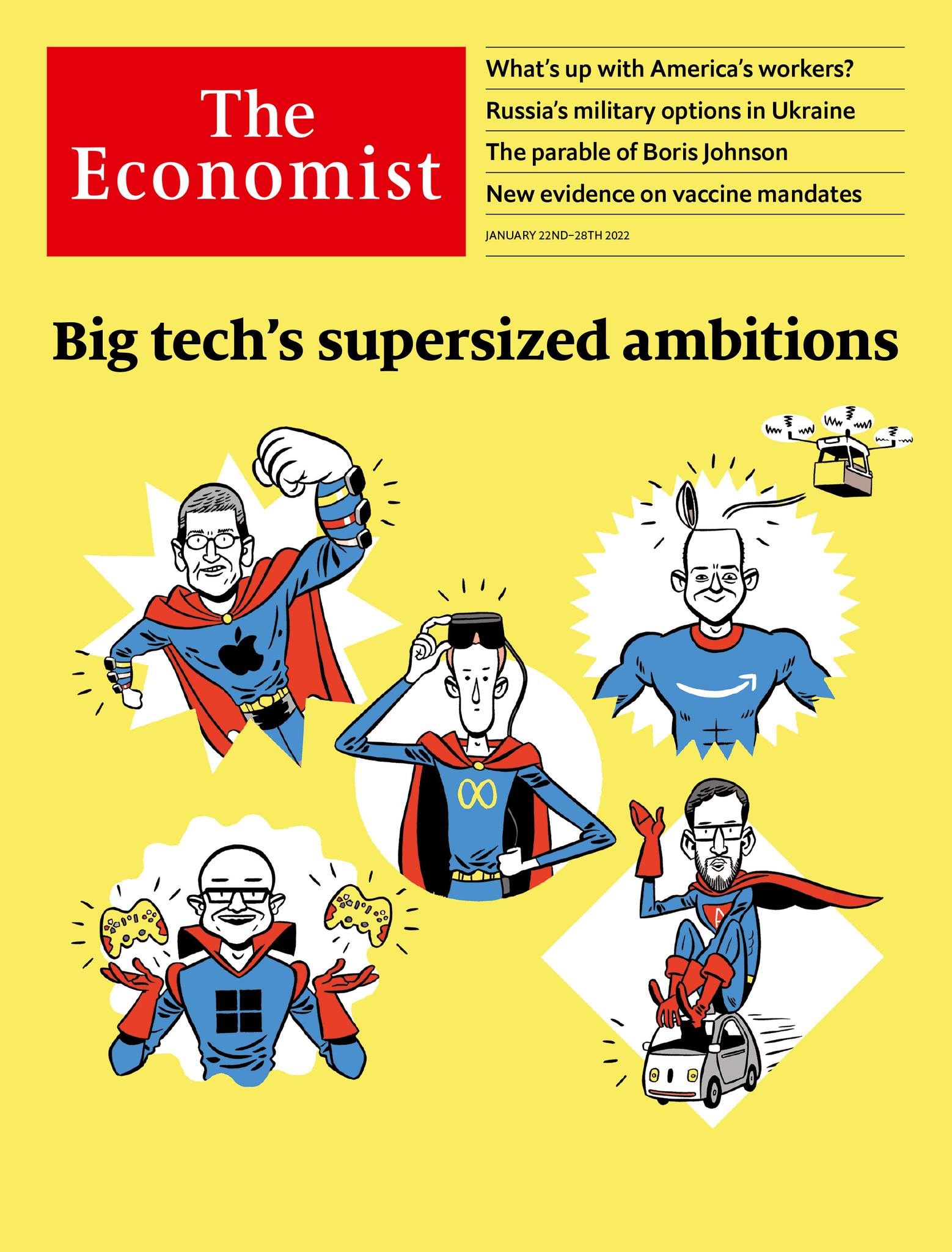Description
The Economist Magazine 28th January 2022
Is there any limit to the ambition and hubris of big tech firms? In October Mark Zuckerberg renamed Facebook Meta and described humankind’ s new future in virtual worlds . On January 18th Microsoft, worth more than $2 trn, decided it wasn’t big enough and bid $69bn for Activision Blizzard, a video games firm, in its biggest ever deal. These decisions are part of a vast new investment surge at five of America’s biggest firms, Alphabet, Amazon, Apple, Meta and Microsoft—call them maama. Together, they have invested $280bn in the past year, equivalent to 9% of American business investment, up from 4% five years ago.
Big tech wants to find the next big opportunity, and our analysis of de als, patents, recruitment and other y ardsticks shows that cash is flowing into everything from driverless cars to quantum computing (see Briefing). The shift reflects a fear that the lucrative fiefs of the 20 10s are losing relev ance, and the fact that tech’s titans are incre asingly moving onto e ach other’s patches (the share of sales that overlap has doubled since 2015 to 40%). So they are all looking to swoop into new territory.
They also have an eye on the history of technology, which is littered with once dominant firms that were brought down not by regulators, but by missing the next big thing. Fair child Semiconductor ruled in the 1950s but now exists only in books. In 1983 ibm was America’s most profitable firm but eight years later was loss making after botching the move from mainframes to pcs. Nokia, once seemingly invincible in mobile devices, fumbled the shift to smartphones. The maamas spent the 20 10s fortifying commanding positions , in business tools for Microsoft, e commerce for Amazon, social media for Meta, and so on. The pandemic has boosted demand, from bored couch surfers to startups in need of cloud computing . Apple and Alphabet are now larger than were us Steel and Standard Oil, the two mighty monopolies of the 1900s, measured by profits relative to domestic gdp. Yet past performance is not indicative of future results, and now all of them are limbering up for whatever comes next. The Economist Magazine 28th January 2022





